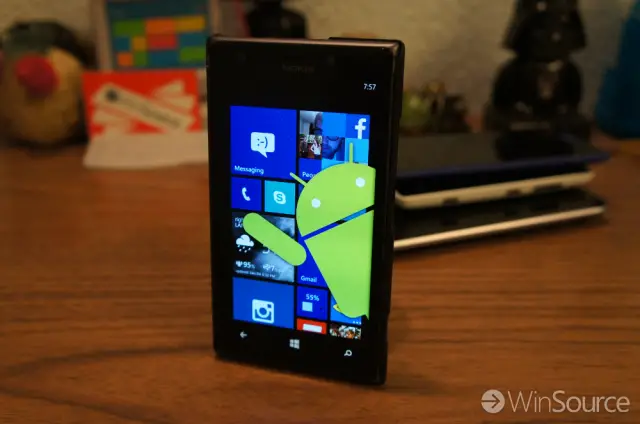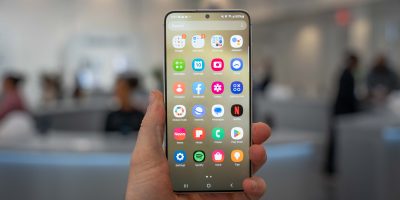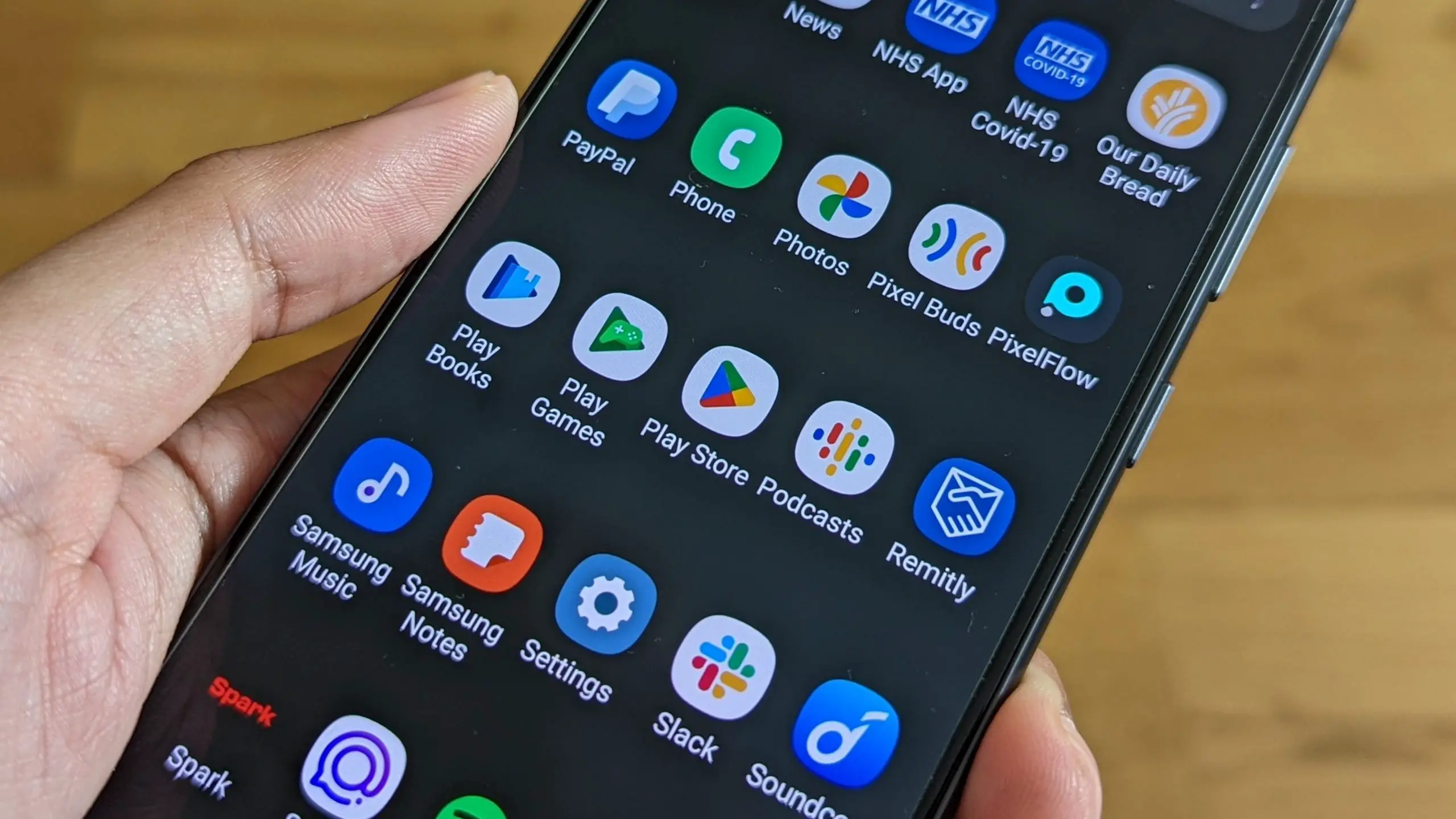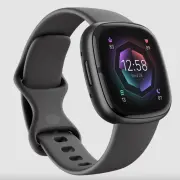It’d probably be an understatement to suggest Microsoft is having trouble getting more developers to fill their apps store with the goods users are looking for. Unfortunately they seem to have found themselves in a classic “chicken or egg scenario” — users won’t come to the platform unless there are apps, but developers won’t develop apps if there are no users.
There’s no shame in that problem, as Android suffered it very early on (though obviously quickly eradicated that with being the fastest growing mobile operating system of all time). Unfortunately for Microsoft, gaining market share to attract more developers is easier said than done. If recent rumors are to be believed, they could be getting ready to do something about it.
The Verge is reporting that Microsoft is seriously considering developing an Android runtime for Windows Phone and perhaps other Windows-based platforms (including RT and the full Windows experience). This would allow developers to port their apps over to Windows Phone with little to no effort. Would it be the first signs of a doomed platform?
History repeating itself?
It’s something our friends in Waterloo have already done for Blackberry 10, giving developers an easy and pain-free way to port Android apps (it literally only takes a couple of lines of code and 5 minutes to compile).
In the same breath, it’s worth reminding ourselves that little move didn’t give Blackberry the boisterous app store they needed to attract more users to their slowly dying platform. As a result, Blackberry was almost sold off to vulturous investors (but not before some rich knights in very shiny armor managed to scare them off).
There’s reason to believe that a move like this is actually counterproductive to the strategies of competing platforms. Their idea is that giving developers an easy way to port existing apps will give them the variety they need to dangle a prettier carrot in the face of potential customers. The problem comes in two areas:
- It gives developers absolutely zero incentive to create native Windows Phone apps. If they can make an app for the biggest mobile platform in the world and port it over to one of the youngest and smallest, they’ll likely go that route — especially if they’re small time or independent. That isn’t good for building your own identity and brand.
- Others have already tried… and failed. Why do you want to make the same mistake?
Yes, more apps bring users to your platform, but it’s not going to make a difference if they can get those apps on more popular devices that are bound to be better fits for their needs. And although I’ve never been one to equate the quality of an app store to how many apps there are, the average consumer is going to hear that typical “a million apps!” line from a carrier rep who’s just trying to get them to walk away with a two-year contract, and unfortunately for Windows, they’ll likely be impressed by it.
Developers, Developers, Manufacturers
We’ve seen this happen with Blackberry. We’ve seen this happen with Palm. It’s a chicken and egg scenario where the platform needs apps to lure consumers, but developers don’t want to develop for a platform without consumers (and therefore viable revenue).
But the case with Windows Phone is different. iOS is the only successful competitor able to sustain itself with a closed ecosystem, making both their hardware and their software. WebOS folded despite having a beautiful OS because they couldn’t pump out phones quick enough and they were the only ones making WebOS phones. Blackberry added Android support for much of the same reason and you know how that’s turned out. Microsoft, though, relies on manufacturing partners to produce Windows Phones.
If Microsoft allows Android Apps it displays a lack of confidence in their own OS and ecosystem. And if Microsoft is creating Windows Phones with Android support, and creating Android Phones with newly acquired Nokia, why should manufacturers like HTC, Samsung, or Huawei have any confidence in developing phones?
Losing developers is one thing and losing manufacturers is another. By inviting Android Apps into their ecosystem, Microsoft will lose both. If Nokia can become the next Apple of Windows Phones that might work, but let’s not fool ourselves.
Are the “Windows” closing for Microsoft?
The Windows Phone platform isn’t bad at all, but it sounds like they could be coming to a point where they’re forced to face a certain harsh reality — there just might not be room for three major platforms in the smartphone space.
Android’s already giving iOS a tough time, and any other sliver of market share outside of the pieces those two share is too insignificant to care about. Soon enough, they’re going to realize that they will either have to foster enough innovation to get consumers to pay attention, or concede defeat and come to grips with the truth — that they’re simply not fit for this tough fight.
Of course, there’s a chance these rumors could be a big pile of bologna so it’s wise to make sure we aren’t getting ahead of ourselves. Still, you have to wonder if this could be considered the first of many “spaghetti sticking to walls” ideas before an eventual white towel is thrown into the ring.
Edgar from ChromeSpot, Joe from WinSource and Phandroid’s very own Chris all had a nice little chat about it on Hangouts earlier today, so be sure to catch that little discussion above if you missed it. After that, meet us in the comments section and let us know what you think!
[via WinSource]












Window’s phone should just be a heavily skinned version of Android. They would get instant access to a massive app library while still being able to prioritize and push Microsoft products. Bing, Skydrive, and other Microsoft software (Maps, music, etc.) would be standard issue and not available in the play store. Call it bloatware, but it would jsut be a replacement to the Google Apps we’ve come to know and love. MSFT could still push their content (books, music, movies, just not apps) and drive more traffic to their services. Keep the same interface and everything, just build it on top of Android.
EDIT: Not sure what this would do to the third-party manufacturers of Windows Phones, but Microsoft could certainly do this with Nokia since it would in essence be proprietary software on top of Android being sold through their own subsidiary. Not sure they’d be able to repackage Android and license it to HTC / Samsung to make Window’s phones. That could complicate things.
Skydrive is already in the Play Store, along with OneNote, Lync, Office 365 and a bunch of other MS apps. Why shouldn’t they be? Removing them to make them Windroid exclusives would be self-defeating.
How useful is an Android phone without the Google Play store? Or even the Amazon app store?
How many people actually *want* Bing, Skydrive, Bing Maps, Music, etc? I won’t even bring up how undesirable IE is as a browser.
That said, I’ll change course to something different. A Microsoft phone running Android leaves out one of the things Microsoft seemed to consider the most important. The fact that developers could use their .NET runtime on a phone. Developers could use Microsoft development tools, and familiar (to Microsoft developers) APIs to write apps on the phone, giving them a leg up.
This type of thing is the same huge beiefit Android gets from it’s API and tools being based on Java. There is literally tons of valuable Java code in existence. Especially in the enterprise. Vast amounts of useful libraries, etc. Many of those just work on Android and are a huge boost to developers.
An Android based Microsoft phone doesn’t give Microsoft the same advantage with Microsoft’s development tools, APIs and languages. In fact, it promotes the competition. A developer can recognize: “oh, if I use Java, Eclipse, Linux, etc, etc, I can write for phones, and other platforms.”. For example Java is in a lot of places you never see: Blu Ray players, and in all SIM cards in GSM phones. (Yes, that tiny SIM card is actually a computer that runs Java and digitally signs things to ensure that it was *this* SIM card that signed them.) Linux is even more everywhere that you don’t see. If you have any reasonable amount of consumer electronics, then you have more running instances of the Linux OS than you have of the Windows OS. Starting with your Android phone. Anything that has an on screen menu, like a TV, a GPS navigator, set top box, and too many other things for me to list here.
Developer resources are limited. It costs more money, time (and brain power if an individual) learns multiple development environments, languages, tools and APIs. Not that it cannot be done. A big company can have multiple teams. But an individual cannot have the same level of mastery of multiple platforms.
Finally, and I don’t know this to be entirely true, but some Microsoft developers might be noticing that PC sales, and with it Windows sales are going down year over year for two years now. They might be eying the attractive worlds of Android, Java, Linux and other non-Microsoft technologies that have a large and growing foothold. That could be partly why Windows Phone is not taking off.
I dont like wp I sold mine
Hijacking Android would limit them to just Nokia as an OEM partner (not really though because they own them), and Nokia is already doing this (see Normandy). Any Android OEM with hopes of accessing the Google Play Store and Google apps is effectively banned from selling any devices that threaten to fragment Android as members of the Open Handset Alliance. It seems like a great idea to just hijack Android since it’s an open OS, strip out the Google services and replace them with Microsoft services, and then leverage Google’s own Android partners to push it, but it’s not that simple. Such a strategy would require OEMs to leave the OHA, and with it all of Google’s services and apps. If it was that simple, Microsoft would have probably already tried it.
Of course it would spell doom. Blackberry porting Android apps didn’t work out so well. What makes Microsoft think it would prove successful for them?
Also, how’s Android giving iOS a hard time when Android produces less than half the revenue compared it its quantitative numbers.
Windows will just need to keep trying harder to get developers to push more apps. They need to rapidly improve the features and user experience of the OS. Android was the exact same way a few years ago but unlike Microsoft today, Google wasn’t sitting on their backs waiting for developers to come to them on a crappy OS back then. They made sure Android was always improving to get to where they are today. Windows Phone hasn’t had a real update in quite awhile besides minor tweaks. Microsoft needs have to give a reason for their OS to appeal to developers to create apps.
The main difference is MS isn’t in the dire straits financially when BB did this.
True. But it can risk them get shut out of the mobile phone world if they do this. The whole purpose of Windows Phone is to diversify Microsoft’s presence in different industries to add more sources of revenue.
And if they get shut out of phones, they’ll concentrate on their Surface tablets. It’s not going to kill them. They bet heavily on the Zune, and while I think it was far better than the early ipods, they killed that.
I can see that happening again.
But it still gives developers a good reason not to develop for the platform. It’s essentially the band-aid, covering up the infected wound but doing nothing to keep the infection from spreading. If they’re going to port Android apps, they may as well fork the entire platform Amazon-style. But say goodbye to licensing to OEMs. Any Open Handset Alliance member will effectively be banned from using any Microsoft OS that runs Android apps as Google will interpret this as an attempt to fragment the platform.
I don’t think they CAN do it. Other OEMs would effectively be banned from using Windows Phone (except Nokia). Don’t forget about the Open Handset Alliance and the requirements of membership. Members are prohibited from selling products that fragment the Android ecosystem. While this may not be seen as harmful as forking the platform, I guarantee Google will leverage that clause to keep Android OEMs from using any version of Windows Phone that runs Android apps.
Are the “windows” closing for Microsoft?….. LMAO!!!!!!
I see what he did there.
Check the MSFT stock price and you’ll have your answer.
Now compare that chart to their competitors and factor in profits and margins, and you’ll actually have your answer.
Twice in this thread you’ve failed at business fundamentals.
I’m not sure what u consider failing but I’m fine with my portfolio being up 18% this year and 55% last year… As for your comment and the article, they both sound like Microsoft could soon be the next BlackBerry or so, and that the “porting app feature from Android to WinMo” could result in putting WinMo totally out of business and kill Microsoft… These statements are far from real and are way too radical and alarmist.
Reminds me of my old Commodore 128. It could run Commodore 64 apps, so very few developers felt the need to make 128-specific builds of their software, even though those apps could access twice as much (!) RAM and an 80-column screen.
Microsoft already makes way more money off of Android oem’s than they do from their own Windows phone platform anyway so it’s a win win for them regardless.
True.
In Europe Windows Phone has more then 10% market share…it would be good for MS to concentrate less on the US market, and gain market share in other countries.
http://2.bp.blogspot.com/-RxdVz3-4zdw/Uom8WcZwaSI/AAAAAAAASvs/L1cLZt4uOTg/s1600/EU5+Smartphone+Market+Share+-+Sep+2013.png
But do you know why has MS gained such a big market share in Europe? Because they made Nokia offering their cheapest Lumia 520 almost for free and loosing a lot of money on selling the phones for less then what was the factory price. I only know 2 girsl who bought MS phone, both of them just because it was Nokia, they have no idea what is the OS inside and they only use the phones for calling, messaging and Facebook.
MS should start thinking, why Windows Mobile (despite all of it’s drawbacks) was popular and Windows Phone is not. It is the same reason why Android is popular – the OS can be customized. But MS thought they can copy Apple with it’s closed and restricted system. But that won’t work, MS is not Apple. They should simply cancel WP and start with a real OS from scratch, if they want to survive in the mobile market.
Shenanigans.
Well.
I can tell you personally, that Nokia and Windows Phone groups are firing their Evangelists (which is a VERY bad thing). These are the people that have a direct connection to the community and keep it alive. They look at metrics like “How many NEW developers have you added to the market?”, not how many have you added and they remain active.
One of those individuals was a friend of mine and was doing it as a part time job in addition to his full time job.
This was my response which was forwarded to people at Microsoft and Nokia:
“You worked an uphill battle as much as you possibly could.
It was extremely hard to get people motivated working within the Microsoft system, not Nokia. The $99 to publish on a brand new system, even for free apps was a KILLER. Issues abound in the C# and VB framework made it hard for people to do quite a few apps. No SQL support for a VERY long time. Horrible MSDN for WinPhone support.
It doesn’t matter how good it is now with dvlup. Most devs were scorned by issues early on despite best efforts.
All the VERY best in the future and I hope that Stevo and I see you at all the events!”
IMO, its very near market-death. There will always be a devoted group, but Microsoft smoothered its own baby here. The SDK was easy an inuitive, the emulatior was the best of any system out now, etc.
Its like how Samsung is killing Tizen by its lack of care and community participation. Intel is working their butts off in Tizen and their “partner” in Samsung is severly lacking. The SDK crashes constantly (a bit less so when run in Linux), very hard to get it up and running properly, and it has odd requirements and install packages which are not documented! OMG, WHAY DOES IT REQUIRE ORACLE JAVA 6 AND WILL NOT ACCEPT SUN-JAVA 6!!!!
So, as you see, MS is killing itself with its own policies and Samsung is too busy raking in money on other things to really care very much.
This is not unique and basically is what happens when an OS is owned and operated by the Device manufacturer for the most part.
Shh…that’s a GOOD thing, Quentyn!
As great as it sounds that MS may give up, at the same time I have to consider it a loss for the market as we’ll only have Android and iOS. With no competition there is no innovation.
I hope they don’t do it because BB already tried and failed this.
WP is not a competition for Android, just like iOS or FirefoxOS. WP, FirefoxOS and iOS are the 3 competing dumb smartphone platforms. The real competition for Android is the brand new Sailfish (from Jolla, founded by former Nokia employees), Ubuntu Touch (should come to market in Q2 2014) and Tizen (Samsung will announce a phone with it soon).
I won’t be missing Microsoft’s WP…
There’s another side to this. Android is not the product people are selling, its the hardware. If 100% of the phones out there were Android, manufacturers would still be competing with each other with various hardware and software bells and whistles.
But each new platform out there splits the developer community. I only write apps for 2 platforms. Most of my friends who develop stick to a single platform. While yes, you’ll always get your facebooks and angry birds on all platforms, the more segregated the ecosystem, the more difficult the choice is for the users.
It’s one reason why I support Android. So long as Android remains open source and free to use, it remains a Standard that everyone has access to.
Ha! Full circle.
(Anyone who remembers OS/2 will appreciate this.)
Comparing BlackBerry and Microsoft is rather silly.
Ten years ago comparing Microsoft to BlackBerry would’ve been silly, when talking about mobile devices that is. WinMo was never as big as BB. Business users used WinMo, but BB was used by business, government, and celebrities. If WP doesn’t start to gain more traction, they may be the new BlackBerry.
I meant the company as a whole… Microsoft makes billions of dollars and can take losses on its WinMo division for decades before ever running close to go bankruptcy . They are so big that they can make mistakes after mistakes after mistakes and still survive… total different case than BBY. Just look at Google and the 10BI it lost with Motorola… didnt seem to scratch them… If this strategy doesn’t work for Microsoft they can fire several people and hire several new ones… no biggie.
“can take losses on its WinMo division for decades before ever running close to go bankruptcy”
The point isn’t avoiding bankruptcy; the point is creating a cohesive desktop/mobile ecosystem that guarantees lock-in of their big money makers: Windows and Office. If they’ve indeed missed the boat on mobile, then there no need to waste anymore resources on it — they’d be better off beefing up their business-oriented software (including iOS apps).
By your logic, they should still be manufacturing the Zune and supporting XP and even though they are money losers.
Tl;dr: Bankruptcy has nothing to do with it; GROWTH of core business is what matters. This is Business 101.
No, by my logic they can make such a miss as the zune and still survive and prosper… same thing here, they can try this strategy of porting apps from android to WinMo and if that doesn’t work they can undo it or replace the strategy with something else… a company like BlackBerry didn’t have that luxury, they couldn’t make big mistakes or they’d get eliminated from the game, which is what is happening with them… comparing those 2 is still rather silly… now you can go back to business 101.
You missed my point completely. You’re comparing MS and BB today. Ten years ago no one ever would’ve considered the possibility that they’d be in the situation they’re in now. If MS doesn’t watch it, they could find themselves in the same boat.
As far as having enough money to make mistakes for decades, that’s not even possible anymore. All it takes is one bad scandal, say if it was shown that MS colluded withwith or was a key player in the NSA on phone data collection scandal. People would avoid them like the plague. But with the PC market starting to falter, W8 having probably the biggest backlash from the public, and slow adoption for their mobile phones and tablets, it could end up being the perfect storm that sends them up s*#t creek. No company is immune from this scenario, if they don’t heed the warning signs.
I’m pretty sure the article wasn’t written 10 years ago… what I’m saying is that the article is way too radical and alarmist and puts Microsoft and BlackBerry at same levels which it never happened, nor 10 years ago, not now and most likely will never happen.
Who said anything about the article being written 10 years ago? The point was BB was in a better position 10 years ago than MS was in the mobile sphere, and now they’re barely alive. And if MS doesn’t learn from BB’s mistakes, they could be in the same position. History can and often does repeat itself.
And MS most likely will never find themselves in the same position as BB? So they’re going to be the one company that is never ending? All of these companies, MS, Google, Apple, will be gone at some point. That’s reality, join us there won’t you?
I doubt they will ever go bankrupt.MS makes a ton of money from Android. More than Google does from it. They also own a large chunk on Apple stock. So they will be around as long as Android or ios survives.
In my opinion, Windows will need to be able to install Google Play Store and install the .APKs made for Android for this to have significant impact. There are already a ton of options to easily develop across all platforms. You can even run .JAR files on windows phones makes porting from Dalvik a non issue. (Though Apogee is bringing us that feature soon)
But leaving it in the hands of the developers is the problem. Developers don’t bother because they don’t care about that 3.6% market share or because they want to bring a native and more windows experience to their users…. when they get around to it. What ever the reason, this leaves Windows users out in the cold.
I wouldn’t be surprised if Microsoft pulls an Amazon and creates a Windows Phone operating system based on Android. The look and feel will be Windows Phone, but the guts will be Android. An Android run-time could be for older phones.
windows phone is a good system, but having Android apps running
on it shows a lack of faith in the system, Microsoft is out to finish Nokia
once and for all, after destroying Symbian/ Meego and now they
will do the same with their own O.S. by becoming Android,if the only choice is Apple or Android it will be bad for consumers,
This will be an interesting test of Ballmer’s vision, under which the closed RT/Metro app ecosystem would gradually replace the current W7 “open” platform for third party Windows developers, as Apple does it. The press has been the new CEO is a Balliever and will follow through with Ballmer himself breathing down his neck from the Board. Porting Android would go a long way to scuttling the W8 hybrid’s mission to wean developers off W7 and onto RT/Metro.